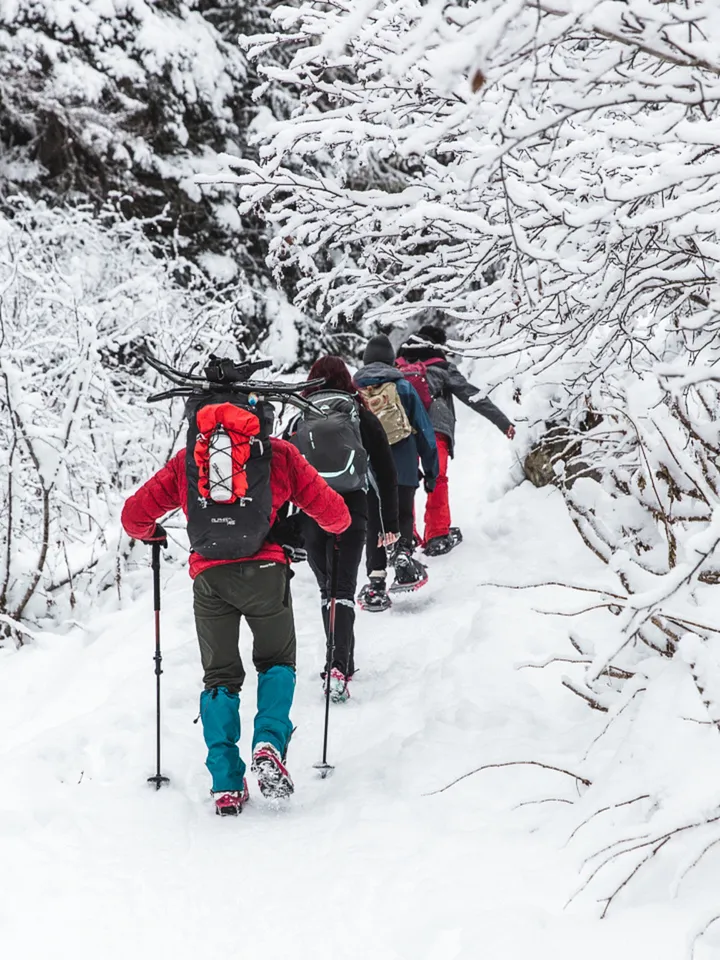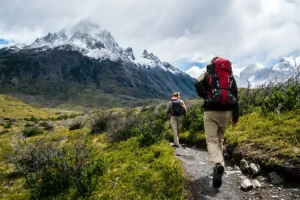Hiking is the best activity I picked a decade ago. I love hiking regardless of the weather. Most people think hiking is only safe to do in summer. I argue that it’s safer in Winter even if you are hiking alone.
Here are my top 5 tips for hiking in Winter.
1- Always tell someone where are you heading
Life is unpredictable, especially in nature; always share with someone that you are going on a particular trial and how long it will take you to return.
Always double-check the hiking area before you leave. I use this app, Alltrail, to check the hiking traffic, difficulty level, and other hikers’ reviews. Maybe you can share the trail link with your friend or family before you go on a hike.
2- Stay hydrated
Most people drink less water in winters, and their body adapts to function that way. Plenty of water is paramount for hiking: Summer or Winter.
Your water may freeze on the trail if you are a new hiker. In summer hikes, most of the time, we keep water on the side of the backpack. But winter hiking is different, keep the water inside the backpack in a couple of layers or add some electrolyte powder. You also need to sip water regularly, making sure it’s reachable.
Pro tip: Try to drink a lot of water regularly, and increase your level intake a day before your next hike. You will say thanks to me on the trail.
3- Take a huge backpack
In summer, it’s okay to take a small backpack on a hike full of water and snacks. But Winter is different; always keep a couple of extra stuff in your backpack.
For example, I use microspikes on my waterproof hiking boots if the hike is more than 3–4 hours. I know you might think you may not need it at the moment. But believe me, winter hiking is really unpredictable compared to the easy summer hike. You have to keep your hands and feet warm all the time. I sometimes use hand warmers, but most of the time, if I am spending a night on the trail, the natural wood stove does the magic to keep me warm.
Pro tip: Do not wear cotton material on winter hikes; it absorbs sweat which is not a great sign. #freez
4- Layers are your best friends
Multi-layers are crucial to keep your body temperature at an optimum level. As I mention in my pro tip, do not wear cotton fabric on the winter hikes; focus on wool or polyester as base layers.
Always wear some quality thermals, skin-tight on your body to keep your blood and keep you warm. Always carry extra layers in your backpack if you get wet and need to put another one, or in rare cases, you might need to change.
Top layer should always be waterproof but still breathable.
5- Keep warm your electronics
Electronics are a big part of life; I try to avoid them as much as possible, but for safety, I take a cell phone, satellite walkie-talkie, extra batteries for my flashlight, and a portable charger on the hikes.
Electronics can save our life in challenging situations at the trail. But they are not designed to work in extreme minus temps. Always keep them inside the layer to keep them warm; therefore, you can use them when you need.
Hiking is an extreme sport; always plan before going on your next trip. Stay safe!
Thank you for reading!




